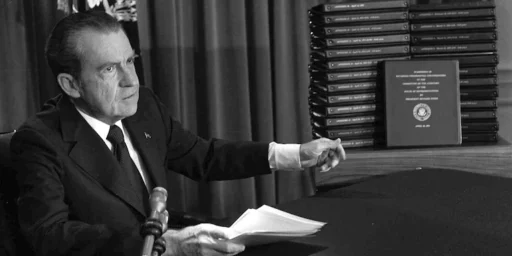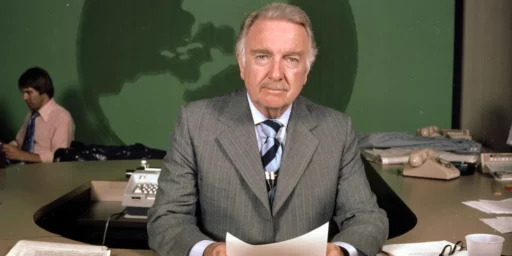DEMOCRATS IN TROUBLE?
Tony Blankley argues that the Democrats are doomed to become a minority party unless they make some wholescale changes. He likens them to Republicans during the period between the rise of FDR and the rise of Ronald Reagan, a “me-too” party with little hold on the American consciousness:
The Republicans have convinced a majority of the public that their central domestic policy (low taxes, free markets, self-reliance and traditional values), and their central foreign policy (security through military strength and aggressive strategy and tactics) is right for the times. The Democratic Party — in its collective heart and mind — opposes such programs and values, but can’t find plausible alternative strategies. So, they support the war on terror, sort of, but gripe about its execution. They oppose tax cuts to stimulate a sagging economy, but can only propose smaller tax cuts as their cure.
While I could quibble with some of his historical analysis (the GOP became the “presidential” party in 1968, not 1980, for example) his larger point is correct. It has been a decade since a Democrat majority was elected to either House of Congress* and, while the Democrats have won a plurality in the last three presidential elections, it was in an aberrant period where national security was not considered an important voting issue.
Blankley offers a prescription for change, however:
There is as much a future for a fresh, modern liberalism today as there was for a new conservatism in 1940 or 1964. There is no permanent party dominance in American politics. For instance, a major new poll by the American Enterprise Institute shows that the younger generations “trust the government, and especially the U.S. military, more deeply than their baby boom parents ever have. This is a generation that knows nations really matter. They trust government. They are also steeped in the values of cooperation, teamwork and service … all these things argue in favor of trust, or support, of the military.”
Those attitudes clearly favor the Republicans right now. But a patriotic, muscular liberalism or collectivism might well tap into those sentiments to build a majority for new big liberal programs in the future. After all, as Americans developed a trust in government during the hardships of the Depression and WWII, they also came to trust big liberal social programs.
While it seems unlikely when watching the current crop of Democrat presidential hopefuls, I believe this transformation is inevitable. Parties get tired of losing eventually and change. And majority parties become arrogant, complacent, or stale. The re-emergence of a Democrat majority is almost inevitable; but it won’t be your father’s Democratic Party.
*There was a 50-50 split after the 2000 election with a Republican VP breaking the tie. It took the defection of Jim Jeffords to give the Democrats temporary control in 2001, only to lose it again when the voters got their say.
Update (1417): Brett Marston thinks the reports of the death of the Democratic Party are largely exaggerated.





